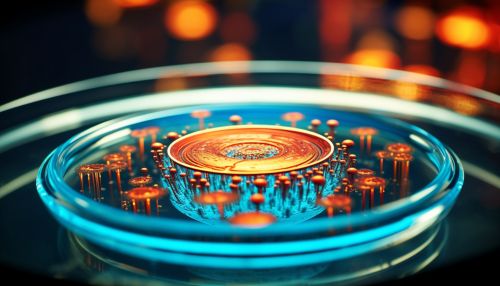Stem Cell Therapy
Introduction
Stem cell therapy, also known as regenerative medicine, is a form of treatment that uses stem cells to repair damaged, diseased, or dysfunctional tissues in the body. Stem cells are unique in that they have the potential to develop into many different types of cells in the body, serving as a sort of repair system. They can theoretically divide without limit to replenish other cells as long as the person or animal is still alive.


Types of Stem Cells
There are several types of stem cells, each with unique properties and potential uses in therapy.
Embryonic Stem Cells
Embryonic stem cells are derived from embryos that are three to five days old. These are pluripotent stem cells, meaning they can divide into more stem cells or become any type of cell in the body. This versatility allows embryonic stem cells to be used to regenerate or repair diseased tissue and organs.
Adult Stem Cells
Adult stem cells are found in small numbers in most adult tissues, such as bone marrow or fat. Compared with embryonic stem cells, adult stem cells have a more limited ability to give rise to various cells of the body. Until recently, researchers thought adult stem cells could create only similar types of cells. For instance, researchers thought that stem cells residing in the bone marrow could give rise only to blood cells. However, emerging evidence suggests that adult stem cells may be able to create various types of cells.
Induced Pluripotent Stem Cells (iPSCs)
Induced pluripotent stem cells (iPSCs) are adult cells that have been genetically reprogrammed to an embryonic stem cell-like state. This is done by introducing genes that are expressed in embryonic stem cells into the adult cells. iPSCs are valuable as they are not derived from embryos and thus avoid ethical issues associated with embryonic stem cells. Moreover, tissues derived from iPSCs will be a nearly identical match to the cell donor and thus probably avoid rejection by the immune system.
Stem Cell Therapy Applications
Stem cell therapy has the potential to dramatically change the treatment of human disease. Some of the areas where stem cell therapy is being studied include:
Regenerative Medicine
Regenerative medicine is a field of healthcare that develops methods to regrow, repair, or replace damaged or diseased cells, organs, or tissues. Stem cell therapy is a key technique in regenerative medicine. It involves the use of stem cells to create living and functional tissues to regenerate and repair tissue and organs in the body that are damaged due to age, disease, and congenital defects. Stem cells have the power to go to these damaged areas and regenerate new cells and tissues by performing a repair and a renewal process, restoring functionality.
Neurodegenerative Diseases
Stem cell therapy holds promise for treating a variety of neurodegenerative diseases, including Alzheimer's, Parkinson's, and Huntington's. Researchers are exploring ways to use stem cells to protect and restore these damaged neurons, potentially slowing the progression of the disease and improving quality of life.
Cardiovascular Diseases
Stem cells have the potential to significantly impact the treatment of cardiovascular diseases. By stimulating repair and regeneration of cardiac tissue, stem cell therapy could potentially reduce the impact of heart disease and heart failure.
Autoimmune Diseases
Stem cell therapy is being explored as a treatment for diseases that result from immune system dysfunctions, such as lupus, rheumatoid arthritis, and type 1 diabetes. By resetting the immune system, stem cell therapy could offer a promising new way to treat these conditions.
Risks and Challenges
While stem cell therapy holds great promise, it also presents significant challenges and risks. These include:
Rejection
If the patient's immune system perceives the stem cells as foreign (because they are from a donor), it may reject them. This is a significant challenge in stem cell therapy.
Tumour Formation
Because stem cells have the ability to divide and proliferate, they could form tumors if cell division becomes uncontrolled.
Ethical Concerns
The use of embryonic stem cells for research or therapy is controversial because it involves the destruction of an embryo. This raises complex ethical and legal issues.
Future Directions
The field of stem cell therapy is rapidly evolving, with new research and clinical trials underway to explore the potential of stem cells in treating a wide range of diseases. As our understanding of stem cells and their behavior in the body improves, it is likely that the range of diseases that can be treated with stem cell therapy will continue to expand.
